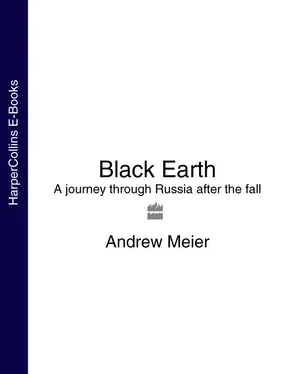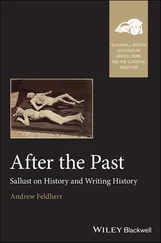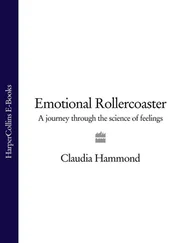1 ...6 7 8 10 11 12 ...15 In the dawn of the new market those who would play its princes, if only for a while, needed gastronomic palaces where they could feast in the unreality of their reality. Across Moscow elite men’s clubs sprouted, with reliable security and robust wine cellars. Fashioned from the pages of Tolstoy and Pushkin, the clubs were draped in pre-Bolshevik bliss. Whether or not such bliss had ever existed didn’t matter. Artifice and excess were the object. In their urge to build a new world, the plutocrats imported Swiss chefs, Austrian furniture, English nannies. Having grown fat on the spoils of the Motherland, they could bask in the shimmer of their own money.
Tucked discreetly off Moscow’s Ring Road, two blocks down from the Institute of Biological Structures, which handles the annual repair work on Lenin’s corpse, is Club T. For a time it was considered among the finest restaurants in Russia. It should be, since it was designed as a private reserve for the new plutocracy, its very own “21” Club. Guests are vetted by videophone. The ten or so tables inside reflect absolute elegance, their pink tablecloths radiant under crystal and gold chandeliers. One corner of the dining room is heavy with the smell of Cuban cigars, another with the high notes of French perfume and Armenian cognac. Silk drapes keep the outside outside. Gold seraphim dance on the walls, their pudgy arms hoisting aloft little gilded candles Large mirrors announce your entrance, reassuring you that you belong, that you’ve arrived. The mirrors also assist the discreet diner to find the famous faces hidden across the room.
One evening, as the cold wake of the crash forced its survivors to renew their exit strategies, I invited four of the earliest American pioneers to join me at Club T. Paul Tatum of course was not the last American investor to see his dream sour in Russia. By the time Russia crashed in 1998, countless frontiersmen had been scalped, fled for home, or moved on to the next gold rush. But the quartet of Americans I invited to dinner – Bill Browder, Peter Derby, Charlie Ryan, and Boris Jordan – who, when their portfolios were at their fattest, controlled several billions of dollars of investments in Russia, remained.
Derby, a New Yorker of Russian descent, had arrived first, opening Russia’s first foreign-owned commercial bank in 1991. Jordan, another prodigal son of Long Island’s Russian diaspora, with roots among the Whites who fled the Revolution, had come in 1992 to help run Crédit Suisse/First Boston’s Moscow outpost. By 1995, having reaped billions of dollars in the privatization scheme, he had left to found Russia’s first Western-style investment bank, Renaissance Capital. The 1998 crash forced a divorce that split the bank, and Jordan for a time found himself isolated and on his own.
Browder, the soft-spoken grandson of, ironically, the American Communist leader Earl Browder, had also arrived in 1992, having run an equity fund for Robert Maxwell and later the Eastern European markets for Salomon Brothers. In April 1996 he founded the Hermitage Fund, a high-end hedge fund that at its peak boasted $1.2 billion in assets. By 1997 Hermitage had returns of 228 percent; Browder’s return on his initial capital was 725 percent.
Ryan first came to Russia after working at the EBRD, the European Bank for Reconstruction and Development. Together with one of Russia’s leading reformers, former Finance Minister Boris Fyodorov, Ryan founded the United Financial Group, which, by 1998, managed more than a billion dollars in assets. With his main line roots and mainstream résumé, he was an anomaly, a reflective banker. “Of course the money brings us here,” Ryan told me in 1997. “But it’s much more than that. We’re building something entirely new. Okay, you can get stability and good returns in the U.S. But can you get the buzz?”
Over snails and caviar, king prawns, and medallions of New Zealand lamb, the evening’s theme, at my request, was “What went wrong?” For the next three hours, the foursome pointed fingers at the IMF, former Prime Minister Sergei Kiriyenko, inborn Russian corruption, falling commodity prices, the global recession, prudish U.S. investors, prudent Asian investors, again the IMF. Jordan inevitably dropped the name of every player in Russia, from Kiriyenko to Soros, and declared early on: “This’ll help them” (“this” being the crash, “them” being the Russians). Derby spoke in breathless arias on the chronology of the fall. Ryan waxed philosophical, and Browder concluded, “Sadly, this is a crash with too many morals.” Sadly, too, the meal, by far the most expensive I had ever eaten, got lost in the burlesque of charge and countercharge.
“The basic problem is you can’t control a company in this country,” stated Jordan.
“You can have controlling stakes,” said Browder.
“And get ripped off on every level,” parried Jordan.
Derby announced that his number two, “a great Russian guy,” would go to jail in days. (In fact, he didn’t.) Derby paused, then said: “We will stay and try to be honest and fulfill our responsibilities.”
“This country’s so corrupt they fucked themselves,” added Browder.
“Bill, you obviously don’t believe that,” replied Jordan, “or else you didn’t do your fiduciary duty for your clients, investing a billion in the place.”
At this moment the joust between Browder and Jordan was interrupted by the governor of St. Petersburg, Vladimir Yakovlev, a blithe opportunist, who stopped by for a round of handshakes. When the governor floated away, Derby seized his chance. “The worst thing about it was there was no reason to default,” he said. “Absolutely none. There wasn’t that much debt coming due, like twelve billion dollars over the six weeks. And it was ruble-denominated. There were reasons to take action, but not to default on the domestic debt.”
“Any country will default if they can’t roll over their debt,” noted Browder. “If the U.S. couldn’t sell T-bills for a month straight, they’d have a big fucking problem. But the thing that’s most damaging is the collapse of the banking system …”
“This place never had a banking system,” scoffed Derby.
“It had a system where you made payments,” Browder retorted. “You can’t make payments now.”
“The banking sector did not take savings, invest it, and get growth through investment,” said Derby.
“There was no multiplier effect,” Ryan summed up.
“And the reason you don’t have people breaking the windows here is that they didn’t deposit their money in the banks,” said Jordan.
“This is one the great mysteries of Russia,” Ryan noted. “No one’s had a job in a lot of towns for years. But car ownership in those same towns has gone up by two hundred percent. Consumer durables are way up. And at the same time no one’s rioting. That’s a clear sign that no one’s being very honest about their real net worth or about their real sources of income.”
“Let’s say you’ve got twenty-five percent of your money in the bank and seventy-five percent in your mattress,” said Browder. “Eventually your mattress money is going to disappear.”
Tuxedoed waiters unveiled course after course with remarkable flair, raising broad silver lids from big silver plates, making sweeping bows in unison. As the evening wound down, Browder, more puckish than the rest, observed, “There used to be Third World countries. Then they became Developing Countries. Then Less Developed Countries. Then the wall came down, and we got Emerging Markets. Well, folks, now they’re gone, too.”
With dessert the conversation drifted to talk of the price of bodyguards, the best tax havens for billionaires, and the travails of Bermudan citizenship. Over coffee, Jordan offered a parable: Back when it was flush, the Central Bank decided to buy an American satellite to monitor electronic trading across Russia’s eleven time zones. No sooner had the satellite been launched than it spun out of orbit. Eventually it disappeared altogether. 8
Читать дальше












